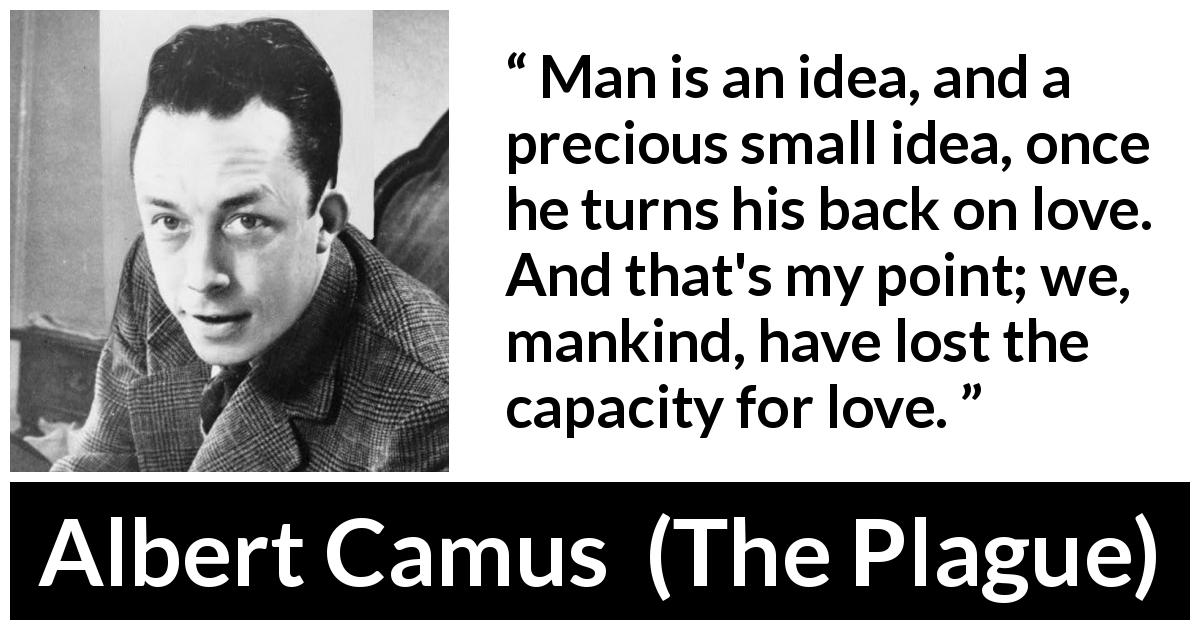In the recent Peace Column of the Catholic Peace Weekly, the writer introduces the readers to the novel: The Plague by Albert Camus, written in 1947 about a plague that swept through the French Algerian city of Oran.
He was about to throw the book out but with the recent coronavirus, epidemic read it again. He wanted to revisit the various aspects of human response to major disasters. The two most interesting characters, according to the writer, are Dr. Rieux and Fr. Paneloux. Both of them have different ways to counteract the plague that struck the entire city and imposed quarantine.
The doctor is the projection of the author Camus an existentialist who sees the absurdity of the whole situation. Human existence is absurd: innocent citizens dying helplessly, including innocent children. All is absurd, meaningless but we have to fight it with all our hearts and not silently look up to the heavens. For Camus, all ends with death.
On the contrary, Fr. Paneloux is transcendent. The pestilence is God's punishment for evil with which the citizens have accepted. Added is the traditional interpretation that pain purifies sinful souls and draws them closer to God. "Today the plague is involved with you because the time of reflection has come. The right people need not be afraid." This was the priest initial understanding of the situation.
Paneloux's first understanding of the tragedy was similar to some believers on the sinking of the Sewol Ferry tragedy, "the warning of God calling for repentance." We need to remember Fr. Paneloux was a fictional character the Sewol tragedy was reality.
The novel culminates when a young son of a trial judge who dies in the plague and struggles with pain. The priest drops his transcendental attitude. He recognizes the plague, not as the punishment of God but a part of the human condition. Afterward, he participates in the fight against the plague more intensely than anyone else.
In the way he addressed the people it was no longer you but we. He did not think of himself separated from the citizens as they were all together combatting the plague. The plague kept the hospitals filled with patients and he spent all his time at their side. It's a perfect age when we don't distinguish you from me. He eventually suffers from the alleged plague, but dies alone, refusing treatment. "We may have to love what we do not understand." It sounds like a confession of surrendering ourselves to an incomprehensible God's will.
He mentions one more character to make a point. He is a journalist, Raymond Rambert, who was trying in every way illegal and legal to get out of the country and back to France. He wasn't concerned with the fate of the citizens but only to get out of the country. The columnist sees him in someway similar to those who try to make money on the suffering of others: the price of masks going up and the way lawmakers change the quarantine areas in the country. However, Rambert did come to a change in conscience, to an allegiance higher than himself.
The absurdity and injustice of the world are not God's work. Plagues and viruses, major accidents… This human condition existed in Oran in the 1940s and in 2020 here in our world. Human beings cannot escape these conditions.
Compassion for pain and our solidarity, this is the power to overcome the absurdity of human existence. Also, believers are to seek out the providence of God as they do what humans need to do. The deeper your anxiety and fear, the louder you should sing of hope. That way, like in Oran, people can gather and dance in every square and advance the day of liberation when the blue golden sky is filled with the sound of bells ringing.
